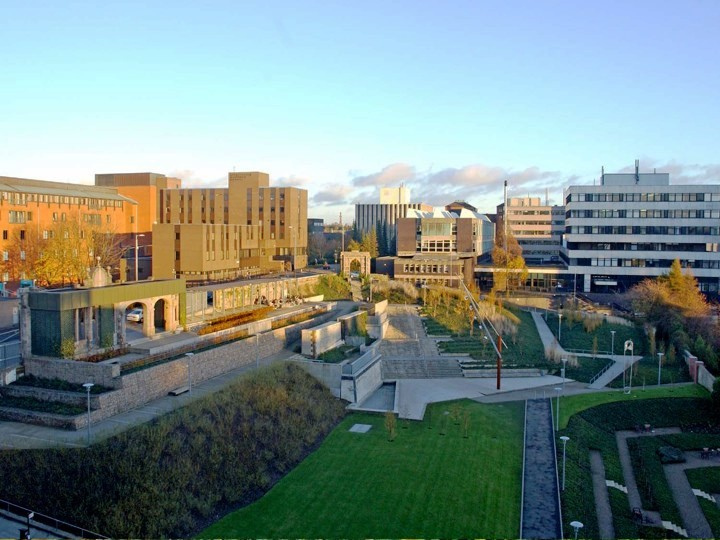A Glasgow PropTech company is working with academics to develop an Internet of Things (IoT) solution to cut down energy use and improve the maintenance of buildings.
Arbnco is working with the University of Strathclyde’s Energy Systems Research Unit (ESRU) on a Knowledge Transfer Partnership (KTP) to ‘push the boundaries’ of cloud-based building services.
The KTP will primarily involve the development of an Internet of Things (IoT) system to help reduce building energy use and improve maintenance with a comprehensive building management system. This will require the deployment of sensors, or use of existing sensors, to collect building data. Cloud-based software will process the data from the sensors to the cloud giving users real-time data on energy use.
The system is being developed in Glasgow and piloted in buildings across the city, including a number of University of Strathclyde buildings.
The project will be led by arbnco’s KTP Associate, Agnieszka Bachleda-Baca. She said: “One of the main issues identified with current technologies is that the raw data collected by sensors is often of limited use on its own, and has the potential to be overwhelming in its quantity. A goal of the project will therefore be applying the right rules and techniques in order to extract the right meaning for the user, and prevent the important information from being lost or unintentionally overlooked.
“There is no generic solution for every building; each building and each facility manager has different requirements. Consequently, the partnership will heavily involve the end users in the software development, putting an emphasis on incremental development.”
The system will target an end-user base of building owners and operators, such as facilities managers or real estate investment trusts. It aims to provide real-time building operation insights, through a centralised dashboard, that will help reduce energy use and improve the management and maintenance of equipment. This will significantly reduce the amount of time it currently takes to manually gather certain types of building data. Real-time performance notifications will also enable building managers to react quickly if any building issues arise.
Professor Joe Clarke, director at the University of Strathclyde’s Energy Systems Research Unit (ESRU), states: “A KTP project is a most effective way to transform research outcomes to practical application as demonstrated in our previous collaborations with arbnco addressing new approaches to building performance tracking. The present KTP will build on past achievements by establishing a building management product based on the ‘Internet of Things’ concept, which is able to provide real-time notification of issues and make available essential data to support decision-making. An important aspect of the new project is the involvement of end users as a means to ensure the applicability of the envisaged estate management product.”
